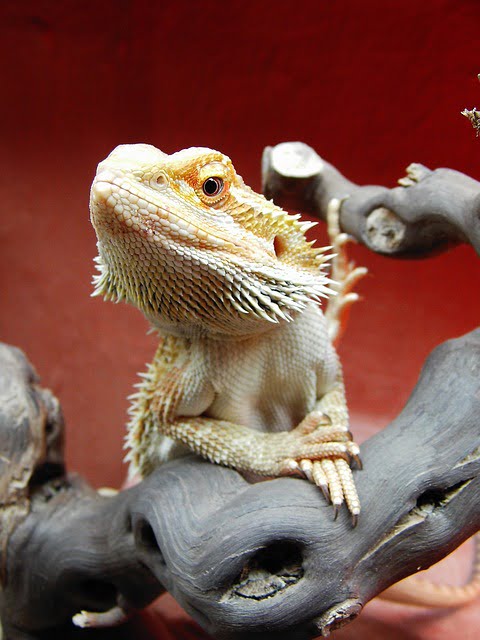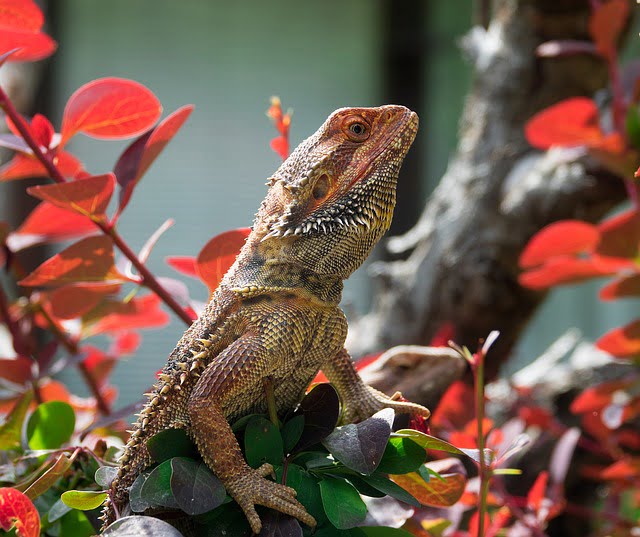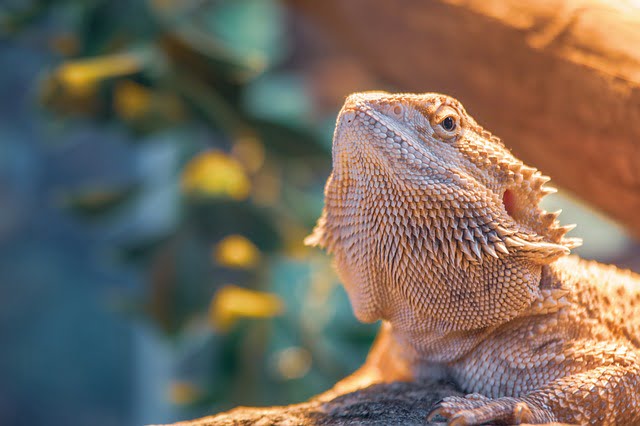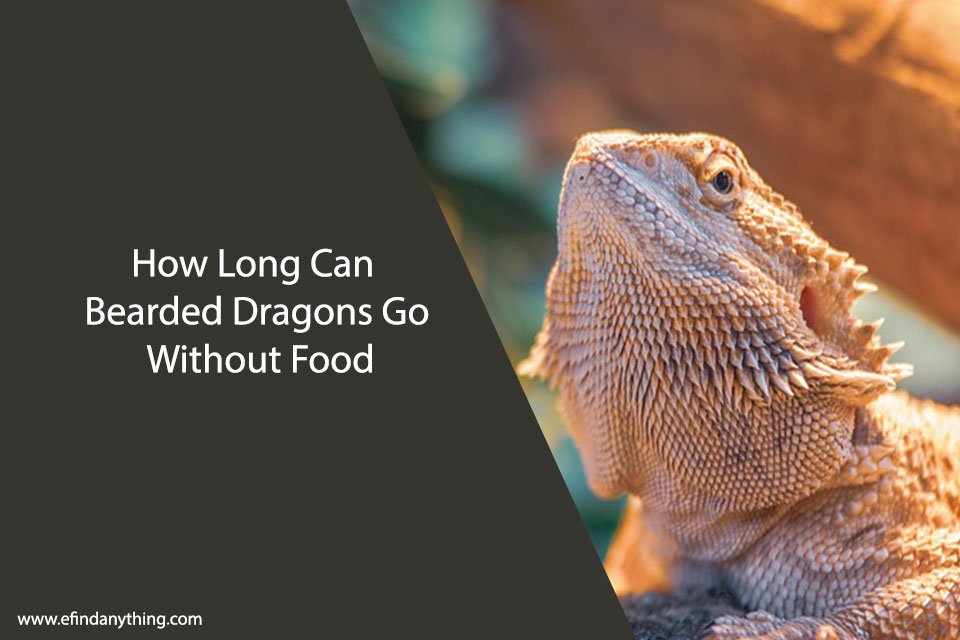Bearded dragons are fascinating reptiles that make popular pets for many reptile enthusiasts. As responsible pet owners, it’s important to understand their dietary needs and feeding habits. One common question that often arises is, “How long can bearded dragons go without food?” In this comprehensive guide, we will explore the factors that influence a bearded dragon’s ability to survive without food, the potential risks involved, and what to do if your dragon stops eating.
Table of Contents
Understanding Bearded Dragons’ Dietary Requirements
Bearded dragons are omnivorous creatures, which means they require a balanced diet of both plant matter and insects. Their diet typically consists of a variety of vegetables, fruits, and live insects, such as crickets, mealworms, and roaches. This combination provides them with essential nutrients, vitamins, and minerals necessary for their growth and overall well-being.
Factors Affecting Bearded Dragons’ Ability to Go Without Food
Several factors influence how long a bearded dragon can survive without food. These factors include age, health, body condition, brumation, and environmental changes. It’s important to consider these factors to ensure the well-being of your pet.

Age and Body Condition
Age plays a crucial role in determining how long a bearded dragon can go without eating. Juvenile dragons, who are still growing and developing, require a steady supply of food to fuel their growth. They should not be deprived of food for extended periods, as it can lead to stunted growth and nutritional deficiencies. Adult dragons, on the other hand, have a slower metabolism and can go for longer periods without eating. However, it is still important to provide them with regular meals to maintain their health and prevent any potential complications.
Brumation
Brumation is a natural state of dormancy that bearded dragons enter during the colder months. During brumation, their metabolic rate slows down, and they may reduce or stop eating altogether. While in brumation, bearded dragons can survive for weeks or even months without food. However, it is crucial to ensure that they have access to clean water during this period to prevent dehydration.
Health and Environmental Changes
A bearded dragon’s health and the changes in its environment can significantly impact its appetite. If your dragon is ill or experiencing any health issues, it may lose its appetite and refuse to eat. In such cases, it is crucial to seek veterinary assistance to diagnose and treat any underlying health problems. Additionally, changes in the dragon’s habitat, such as a new enclosure, different temperatures, or the introduction of new accessories, can also cause stress and affect its eating habits. Monitoring these factors and making necessary adjustments can help ensure your dragon’s well-being.
How Long Can Bearded Dragons Go Without Food?
The ability of a bearded dragon to go without food varies depending on the factors mentioned above. While adult dragons can potentially survive for several weeks without food, it is not recommended to deprive them of food for extended periods. Juvenile dragons, who require more frequent meals, should not go without food for more than a day or two. It is essential to prioritize their nutritional needs to support their growth and development.
It is important to note that while bearded dragons can survive without food for certain durations, it is not ideal for their overall health and well-being. Regular and balanced feeding is crucial to ensure their nutritional requirements are met.
Risks of Extended Food Deprivation
Depriving a bearded dragon of food for extended periods can have severe consequences on its health and well-being. Some of the risks associated with prolonged food deprivation include:
- Nutritional Deficiencies: Bearded dragons require a variety of nutrients for proper growth and development. Prolonged food deprivation can lead to deficiencies in essential vitamins, minerals, and macronutrients, which can negatively impact their overall health.
- Weakened Immune System: Inadequate nutrition weakens the immune system, making bearded dragons more susceptible to infections and diseases. A weakened immune system can also hinder the dragon’s ability to recover from illnesses.
- Weight Loss and Muscle Wasting: Extended periods without food can result in significant weight loss and muscle wasting in bearded dragons. This can lead to weakness, lethargy, and other complications.
- Organ Damage: Nutritional deficiencies and prolonged food deprivation can cause organ damage, particularly to the liver and kidneys. These organs play vital roles in the dragon’s overall health and must be properly nourished.
- Impaired Reproductive Health: Female bearded dragons may experience reproductive issues, such as egg-binding, if they are not provided with proper nutrition. Extended food deprivation can disrupt their reproductive cycle and lead to complications during egg-laying.
To ensure the optimal health and well-being of your bearded dragon, it is crucial to provide regular and balanced meals.
What to Do If Your Bearded Dragon Stops Eating
If your bearded dragon stops eating or shows a significant decrease in appetite, it is essential to investigate and address the underlying cause. Here are some steps you can take:

- Check for Environmental Factors: Assess your dragon’s habitat and make sure there are no changes or stressors that could be affecting its appetite. Ensure proper temperature gradients, lighting, and a clean enclosure.
- Evaluate Diet and Feeding Routine: Review your dragon’s diet and feeding routine. Have you introduced any new foods or changed their diet recently? Bearded dragons can be selective eaters, so it’s important to offer a variety of foods to meet their nutritional needs.
- Monitor Behavior and Health: Observe your dragon’s behavior and look for any signs of illness or discomfort. If you notice any unusual symptoms, such as lethargy, diarrhea, or weight loss, it is crucial to seek veterinary advice promptly.
- Provide a Balanced Diet: Ensure your dragon’s diet includes a variety of vegetables, fruits, and live insects to meet its nutritional requirements. Consider consulting a reptile veterinarian or a herpetologist for dietary recommendations specific to your dragon’s needs.
- Maintain Hydration: Offer fresh, clean water regularly to prevent dehydration. Bearded dragons may obtain moisture from their food, but access to clean water is still essential for their overall health.
- Seek Veterinary Assistance: If your bearded dragon continues to refuse food or shows signs of illness, it is crucial to consult a reptile veterinarian. They can perform a thorough examination, provide appropriate treatment if necessary, and offer guidance on how to encourage your dragon to eat.
Remember, bearded dragons rely on their owners for optimal care and nutrition. Regular veterinary check-ups and a balanced diet are essential to ensure their well-being.
Frequently Asked Questions (FAQs)
Q: How often should I feed my bearded dragon?
A: The frequency of feeding depends on the age of your dragon. Juvenile dragons require more frequent meals, usually once or twice a day. Adult dragons can be fed once a day or every other day. It is important to monitor their appetite and adjust the feeding schedule accordingly.
Q: Can I force-feed my bearded dragon if it refuses to eat?
A: Force-feeding should only be done under the guidance and supervision of a reptile veterinarian. It is not recommended to force-feed your dragon without proper training and knowledge, as it can cause harm and stress to the animal.
Q: What are some common reasons why bearded dragons stop eating?
A: There are several reasons why a bearded dragon may stop eating, including environmental changes, illness, stress, brumation, or a dislike for certain foods. It is important to identify the underlying cause and address it accordingly.
Q: How can I encourage my bearded dragon to eat?
A: You can try offering a variety of foods, including different vegetables, fruits, and live insects, to entice your dragon to eat. Ensuring a clean and comfortable environment, providing proper temperature gradients, and seeking veterinary advice can also help stimulate their appetite.
Q: How long can bearded dragons go without water?
A: While bearded dragons can survive for some time without food, they require access to clean water regularly. Dehydration can be life-threatening for these reptiles, so it’s important to provide fresh water daily.

Conclusion
Bearded dragons are fascinating reptiles that require a balanced and nutritious diet to thrive. While they can survive for certain durations without food, it is essential to prioritize their nutritional needs and provide regular meals. Factors such as age, health, brumation, and environmental changes can influence their ability to go without food. If your bearded dragon stops eating, it is crucial to investigate the underlying cause and seek veterinary assistance if necessary. By ensuring their dietary requirements are met and addressing any health issues promptly, you can help your bearded dragon live a healthy and fulfilling life.





